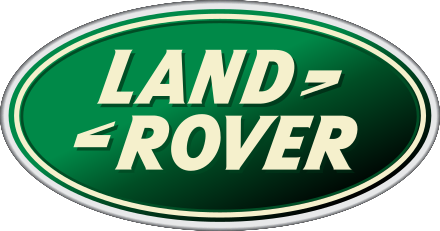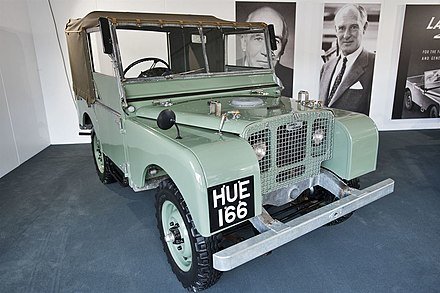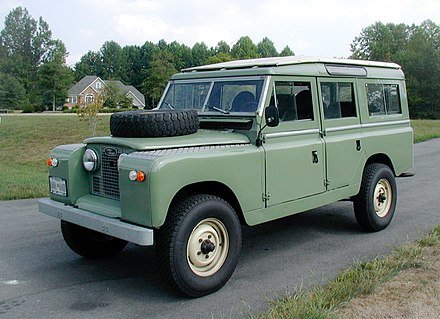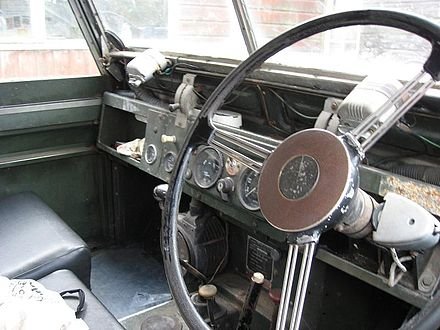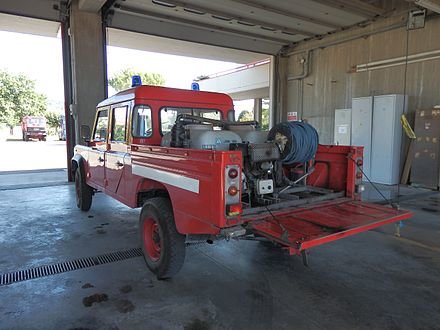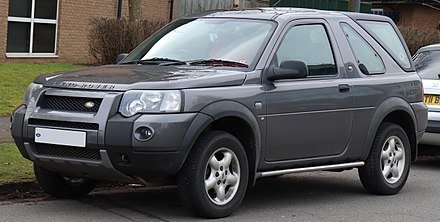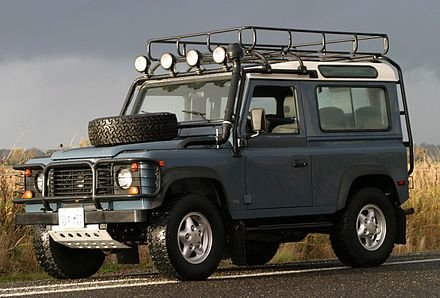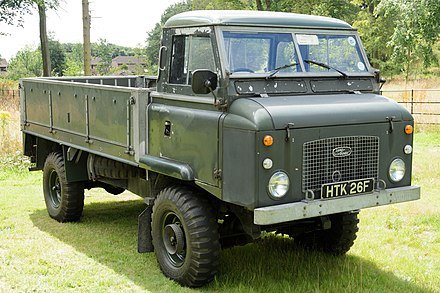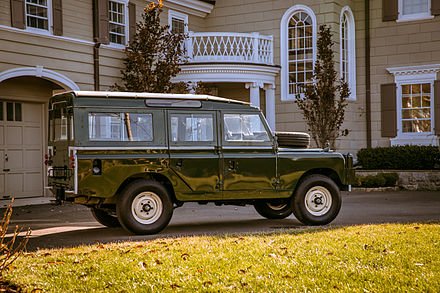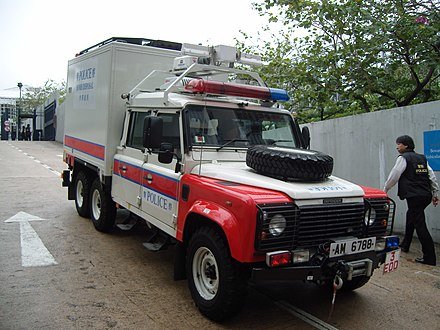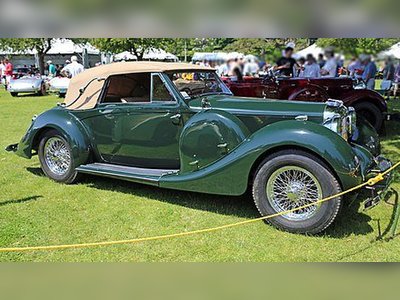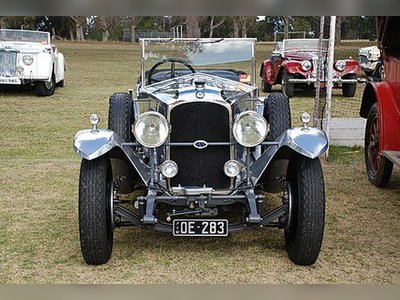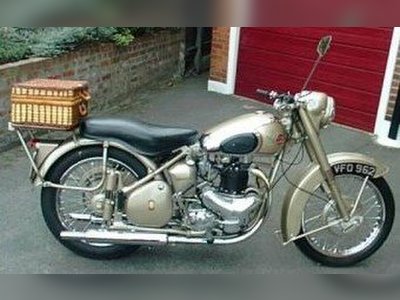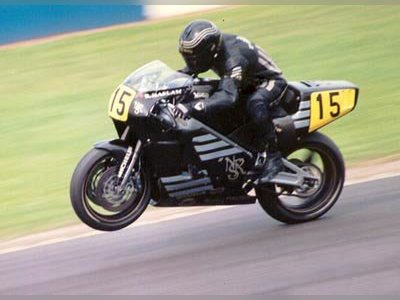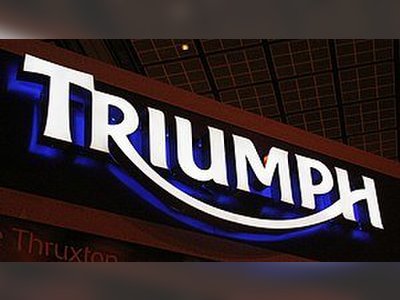British Heritage
Remember, Cherish, Learn.
beta
Land Rover
A British Heritage of Off-Road Excellence.
Introduction
Land Rover is a British brand that has established a legacy as a manufacturer of predominantly four-wheel drive, off-road capable vehicles. Since its creation in 1948 by the Rover Company, Land Rover has become an iconic symbol of British engineering and adventure. Today, it is owned by the multinational car manufacturer Jaguar Land Rover (JLR), a subsidiary of India's Tata Motors. Over the years, Land Rover has contributed significantly to British heritage, received prestigious awards for its outstanding contributions, achieved global success, and expanded its lineup to include upmarket and luxury sport utility cars.
Contribution to British Heritage
Land Rover holds a special place in British heritage, becoming synonymous with rugged exploration and off-road capabilities. In 1951, the brand was granted a Royal Warrant by King George VI, solidifying its status as a vehicle fit for the royal family. Fifty years later, in 2001, Land Rover received a Queen's Award for Enterprise in recognition of its outstanding contribution to international trade. This prestigious award highlighted the brand's global significance and its role in promoting British manufacturing excellence.
Throughout the years, Land Rover vehicles have been widely used by the British military, serving as essential tools for various operations. Land Rovers played a crucial role in military applications, such as reconnaissance, transport, and even as gunbuggies. The brand's association with the military further strengthened its image as a symbol of British resilience and ingenuity.
Legacy and Success
The legacy of Land Rover stems from its iconic and durable design, which originated in 1947 under the guidance of Maurice Wilks, the chief designer at the Rover Company. Inspired by the military Jeep, the first Land Rover prototype, known as the Centre Steer, was built on a Jeep chassis and axles. It was constructed on Wilks' farm in Newborough, Anglesey. The early Land Rovers were painted various shades of light green, as the color was readily available in military surplus aircraft cockpit paint.
Land Rover's success has been marked by continuous innovation and a diverse lineup of vehicles. Over the years, Land Rover has expanded its range, introducing models like the luxurious Range Rover in 1970, the mid-range Discovery in 1989, and the entry-level Freelander in 1997. These additions allowed Land Rover to cater to a broader customer base while maintaining its reputation for off-road excellence.
In 1978, Land Rover became a separate company under the Rover-Triumph division of the British Leyland Motor Corporation (BL). The brand's enduring commercial success, especially with models like the Range Rover, prompted its establishment as an independent entity. Later, Land Rover became part of the Rover Group in 1988 under the ownership of British Aerospace after British Leyland was privatized.
During its history, Land Rover underwent changes in ownership. In 1994, it was acquired by BMW, and later in 2000, it became a part of Ford Motor Company's Premier Automotive Group. However, in 2008, Land Rover found its home under the Tata Motors umbrella when Ford sold its Jaguar and Land Rover operations to Tata Motors, an Indian automotive company.
Land Rover's success in the market can be attributed to its adaptability and ability to meet diverse customer demands. The brand introduced two-wheel drive variants of its vehicles in 2010, expanding its reach to customers seeking more economical options without compromising on Land Rover's renowned quality and design.
Manufacturing and Global Presence
Land Rover's manufacturing facilities are spread across five countries: the United Kingdom, Brazil, China, India, and Slovakia. The UK remains a significant manufacturing hub for Land Rover, producing models like the Range Rover, Range Rover Sport, Range Rover Velar, Discovery Sport, and Evoque at the Solihull and Halewood plants.
The brand's global presence has enabled it to gain traction in various markets. Europe is Land Rover's primary market, accounting for 40% to 50% of global unit sales, with the UK being a key market within the region. Land Rover has also experienced substantial growth in the Asia Pacific region, with China emerging as its largest single-country market.
Models and Concepts
Land Rover's vehicle lineup includes a diverse range of models, each catering to different customer preferences. The Discovery Sport holds the distinction of being the most successful Land Rover model, with significant global sales. The Range Rover Sport follows closely behind in popularity, appealing to customers seeking a sportier version of the luxurious Range Rover.
Throughout its history, Land Rover has showcased several concept vehicles, displaying its commitment to innovation and the future of the automotive industry. Notable concepts include the Range Stormer, which later evolved into the Range Rover Sport, and the Land Rover LRX, which ultimately became the Range Rover Evoque.
Land Rover in Military and Specialized Applications
The Land Rover brand has a storied history of serving military forces worldwide. Its adaptability and ruggedness have made it a preferred choice for various military applications. Land Rovers have been modified and armored to serve in roles like reconnaissance, troop transport, and even as gunbuggies. The brand's association with military use further cements its place in British heritage and its reputation for reliability and toughness.
Land Rover also caters to specialized markets with vehicles designed for specific events or themes. Examples include the Camel Trophy and G4 Challenge vehicles, which were later made available to the public. Additionally, Land Rover has been used in expeditions, such as the G4 Challenge, a unique adventure event that put drivers and vehicles to the test in challenging terrains.
Land Rover Experience and Safety
To help customers maximize their vehicles' off-road capabilities, Land Rover established the Land Rover Experience network in 1990. This network includes centers across the globe, offering courses in off-road driving, winching, trailer handling, and various adventure days. The Land Rover Experience allows customers to fully explore and appreciate the capabilities of their Land Rover vehicles.
Land Rover also prides itself on its commitment to safety. According to UK Department for Transport data, the Land Rover Defender has one of the lowest chances of driver fatalities or serious injuries in two-car injury accidents, highlighting its robust design and protective features.
Conclusion
Land Rover's contribution to British heritage and its global success make it an iconic brand in the automotive industry. With a legacy rooted in exploration, ruggedness, and innovation, Land Rover vehicles continue to captivate enthusiasts and adventure seekers worldwide. From its military applications to its luxurious sport utility cars, Land Rover's diverse range of models reflects its ability to adapt to changing market demands while maintaining its signature off-road excellence. As Land Rover continues to evolve and innovate, it remains a symbol of British engineering prowess and adventurous spirit.
- Land Roveren.wikipedia.org
